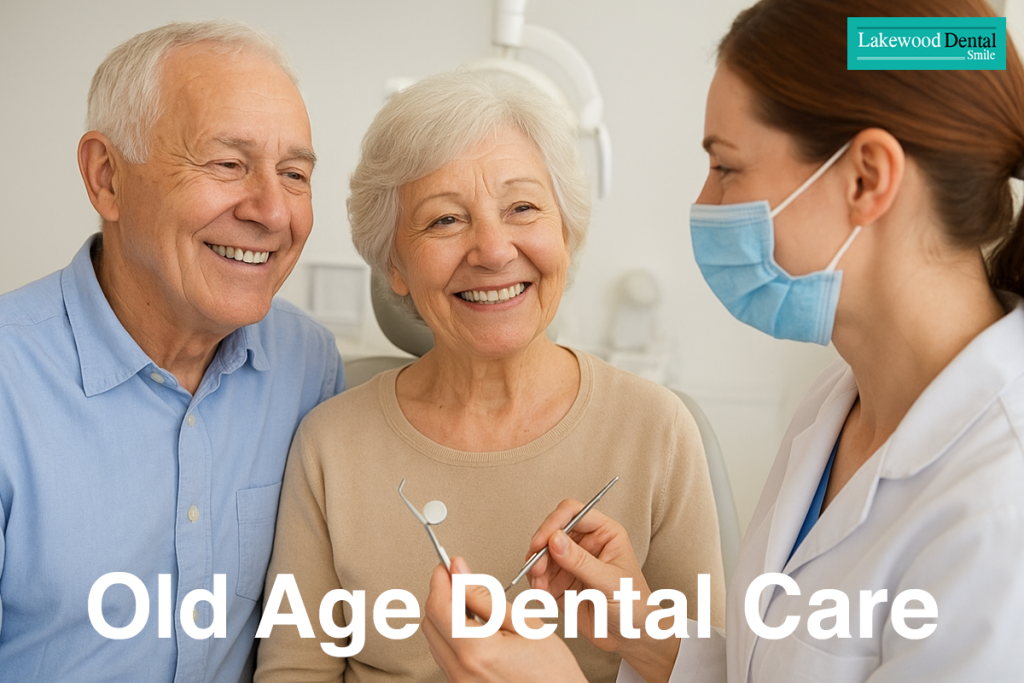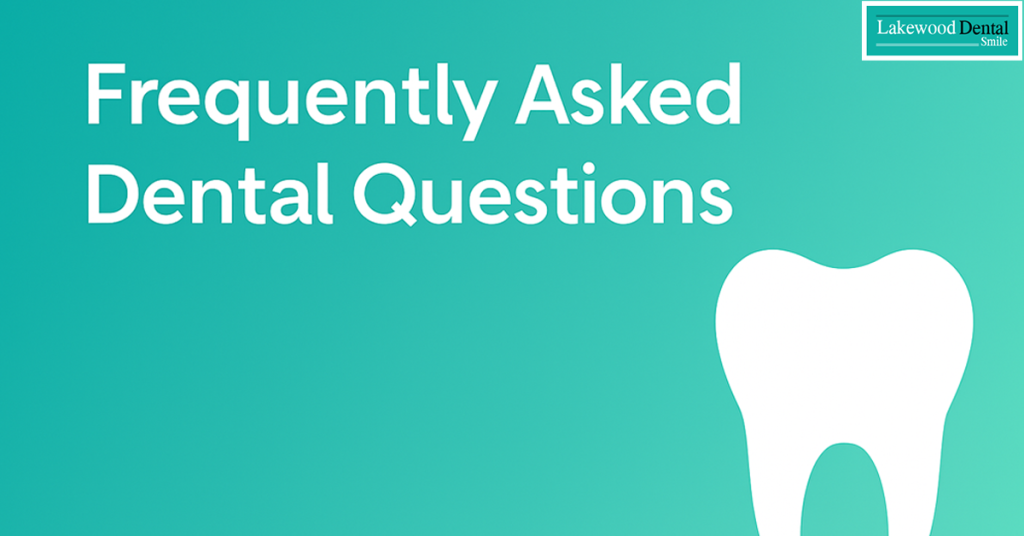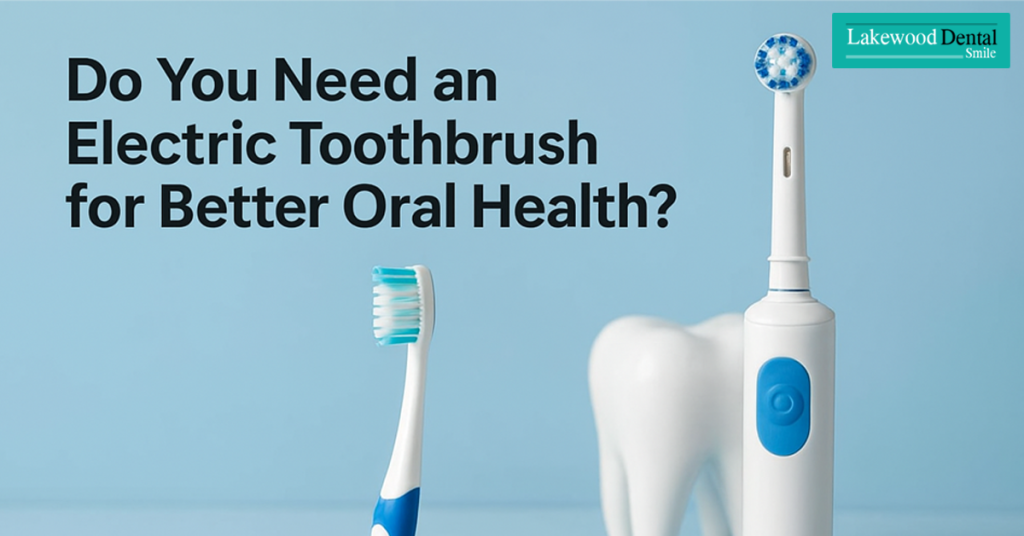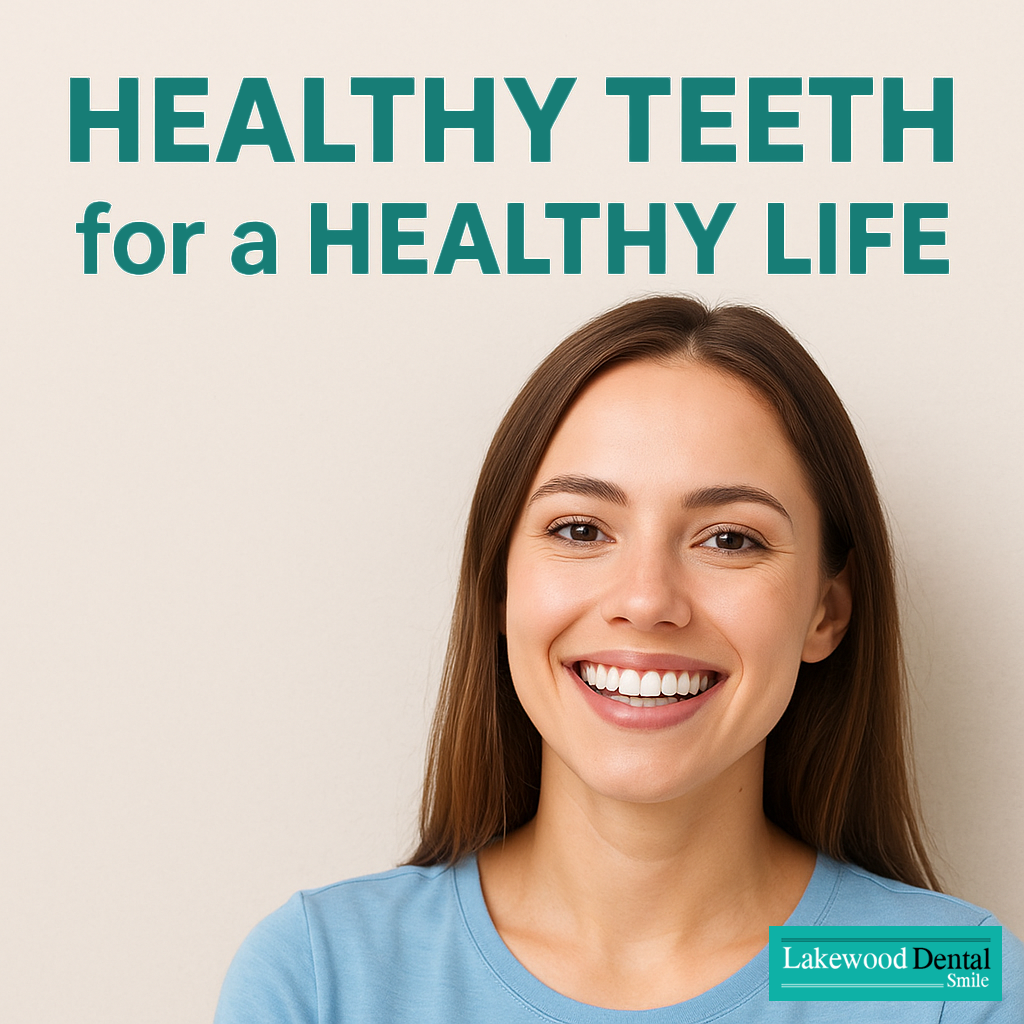
Old age dental care is essential for maintaining a healthy smile and overall well-being. No matter your age, taking care of your teeth and gums allows you to eat comfortably, talk, and smile with confidence. For older adults, oral health becomes even more important as it directly affects nutrition, general health, and quality of life.
🪥 Tooth Decay
Teeth are designed to last a lifetime, but without proper care, bacteria form a sticky film called dental plaque. This plaque leads to tooth decay (cavities) and contributes to gum disease.
Fluoride remains as beneficial for adults as for children. Using fluoride toothpaste and mouthwash helps strengthen teeth and protect against decay. Regular brushing and professional cleanings are the best defense against cavities and tooth loss.
🩸 Gum Diseases
Gum disease is an infection that damages the gums and the bone supporting the teeth. When plaque isn’t removed, it hardens into tartar, which regular brushing can’t eliminate. Over time, this buildup causes inflammation and infection.
Gingivitis: Gums become red, swollen, and bleed easily.
Periodontitis: If gingivitis is untreated, gums pull away from the teeth, forming pockets that trap bacteria. This can damage the bone and tissues, causing loose teeth or even tooth loss.
How to prevent gum disease:
- Brush twice daily with fluoride toothpaste
- Floss once a day
- Visit your dentist regularly for checkups and cleanings
- Eat a balanced diet rich in calcium and vitamins
- Avoid tobacco and alcohol products
Early detection and consistent oral hygiene are the keys to preserving strong, healthy gums for life.
🪞 Cleaning Your Teeth and Gums
Knowing how to brush and floss correctly is fundamental to effective old age dental care.
- Use a soft-bristled toothbrush and fluoride toothpaste
- Brush gently in circular motions, covering every tooth surface
- Pay extra attention to the gum line
- Gently brush your tongue to reduce bacteria and freshen breath
- Floss daily to clean between teeth and along the gums
Electric toothbrushes can make brushing easier for seniors with arthritis or limited hand movement, ensuring thorough cleaning without strain.
🌿 Special Dental Concerns for Older Adults
As people age, certain oral health issues become more common:
- Dry mouth (xerostomia): Often caused by medications, reduces saliva flow, increasing the risk of decay and gum disease.
- Tooth sensitivity: Worn enamel or receding gums make teeth more reactive to temperature changes.
- Tooth loss and dentures: Missing teeth affect chewing and nutrition. Properly fitted dentures or dental implants can restore comfort and function.
- Difficulty brushing or flossing: Conditions like arthritis may make oral care harder; adaptive tools and electric brushes can help maintain hygiene.
These challenges make routine old age dental care essential for preserving oral comfort and preventing avoidable problems.
❤️ The Link Between Oral Health and Overall Health
Oral health is closely tied to overall health, especially in older adults. Poor oral hygiene has been linked to:
- Heart disease and stroke
- Diabetes complications
- Respiratory infections caused by mouth bacteria entering the lungs
- Poor nutrition due to difficulty chewing
By maintaining consistent oral hygiene, seniors can reduce these risks and enjoy improved well-being, better digestion, and greater confidence.
👩⚕️ The Role of Caregivers
For seniors who need support, caregivers play an important role in maintaining old age dental care routines.
They can assist by:
- Helping with daily brushing and flossing
- Scheduling regular dental visits
- Watching for signs of dental problems like swelling, pain, or bad breath
- Encouraging healthy eating habits and limiting sugary snacks
Caregiver involvement ensures that seniors continue to enjoy comfort, confidence, and oral health independence for longer.
🗝️ Key Takeaways
- Oral care is vital at every stage of life, especially in old age.
- Regular brushing, flossing, and dental checkups prevent tooth decay and gum disease.
- Seniors should pay attention to dry mouth, sensitivity, and denture fit.
- Caregiver and family support enhance the success of daily dental routines.
Consistent old age dental care helps protect your smile, health, and confidence — and at Lakewood Dental Smile, our caring team is dedicated to supporting seniors with personalized care, gentle treatments, and long-lasting results.




